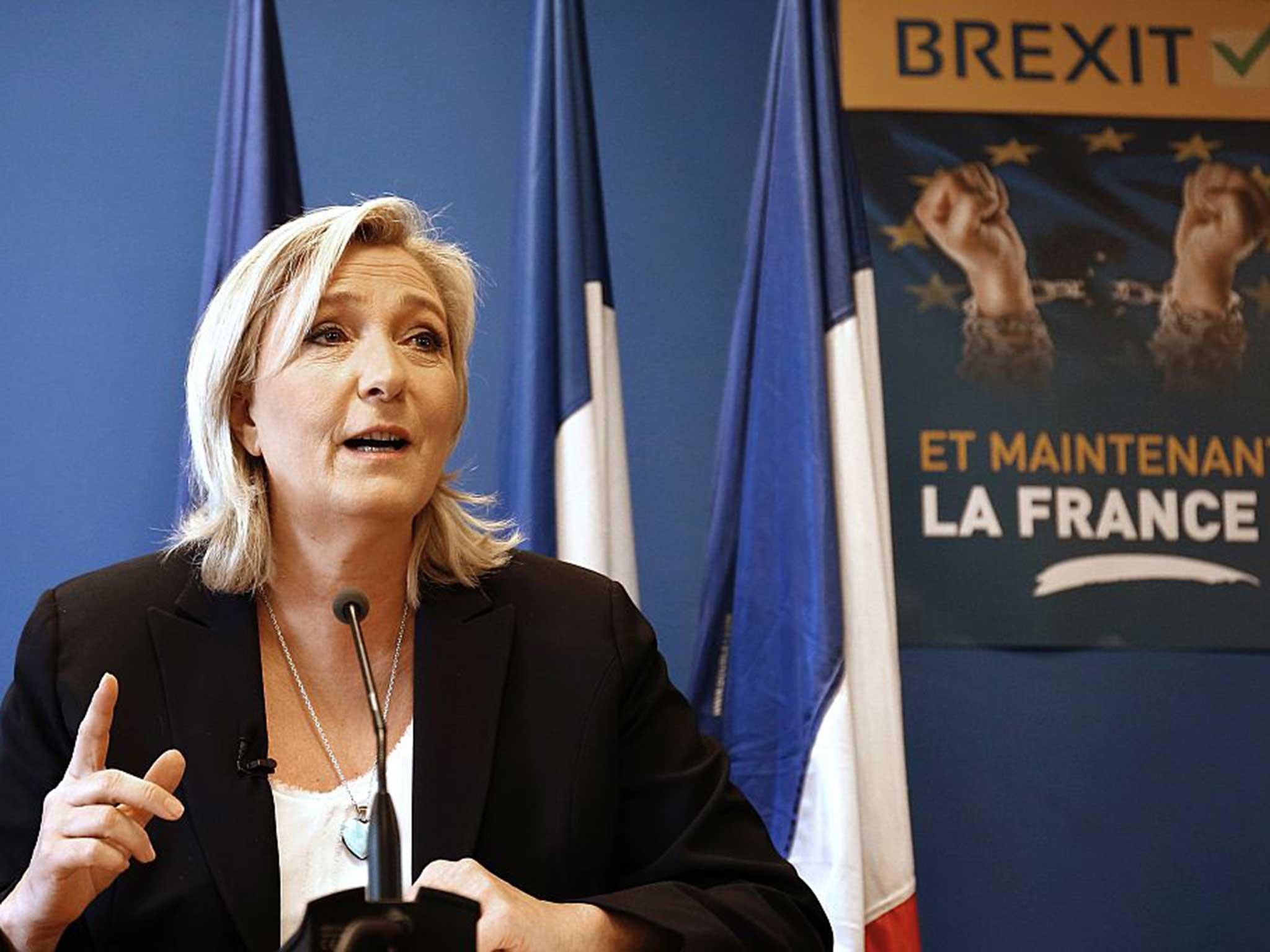Brexit vote could trigger a 'European political tsunami' with 34 possible referendums, report suggests
Parties across Europe 'have watched what Ukip have achieved in terms of hijacking the mainstream agenda in the UK and are very keen to take that forward in their own countries'

Britain's vote to leave the European Union could trigger a "political tsunami" which could "paralyse" the union, a report has suggested.
Several "insurgent" parties across Europe have called for Britain's referendum to be emulated in their own countries, with pushes for at least 34 referendums in the coming years, according to a report by the European Council on Foreign Relations.
"It's really clear that some of the themes we saw coming out in the UK referendum campaign are prevalent across EU states," Susi Dennison, the report's author, told BBC Radio 4's Today's Programme.
"Although a lot of the parties that we looked at were founded on domestic issues, the impact of the refugee crisis, the austerity agenda in Europe and so on, is leading these parties to develop quite a strong foreign policy which is really challenging some of the basic tenets of the European post-war consensus.
The referendums cover a broad range of subjects, from a country's membership of the EU to refugee relocation quotas.
Populist parties have taken inspiration from Ukip's success, Ms Dennison added: "There's a very strong group that have watched what Ukip have achieved in terms of hijacking the mainstream agenda in the UK and are very keen to take that forward in their own countries."

Across the EU, "insurgent" parties play a direct role in the national government of eight member states and hold 1,329 seats in 25 states, the report found.
It says such parties are using the media, popular pressure and political office to force national referendums on issues which were previously debated by civil servants and governments.
The report also identifies several key themes shared among populist parties, such as scepticism of the EU, resent towards the United States and suspicion of free trade. They also shared a preference for closed borders and were broadly pro-Russian.
"These parties could act as a significant block in upcoming EU Council plans for a migration compact with neighbouring transit countries," the report states, "and many will oppose the extension of Russia sanctions beyond the summer".

Britain's vote to leave the EU was met by celebrations from far-right groups across Europe.
Marine Le Pen, leader of the National Front in France, declared the British people had given Europe and the world "a dazzling lesson in democracy," while the leader of the Dutch Freedom Party Geert Wilders called for a "Nexit" vote as soon as possible, saying “the Dutch population deserves a referendum as well”.
In Germany, Beatrix von Storch, a member of the right-wing Alternative for Germany (AfD) party, told national broadcasters she “cried for joy” at the news of the result. Support for AfD, which takes an anti-Eurozone and anti-immigration stance, has recently surged to new levels amid concern over refugees entering the country.
Italy's Five-Star Movement is pushing for a referendum on whether to keep the Euro, while Denmark and Sweden have both shown interest in leaving the European Union.
Join our commenting forum
Join thought-provoking conversations, follow other Independent readers and see their replies
Comments
Bookmark popover
Removed from bookmarks